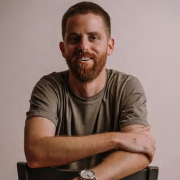Reds' Joey Votto on Systemic Racism: 'Only Now Am I Just Beginning to Hear'
Count Reds first baseman Joey Votto among those in the sports world who have felt compelled to speak out in the aftermath of George Floyd's killing.
On Sunday, the six-time All-Star and former National League MVP penned a guest column for The Cincinnati Enquirer. In it, he discussed how his immediate reaction to the video of Floyd's death was to defend the police officer—Votto recalls thinking, "Perhaps the man was resisting arrest? Maybe there is a story the video isn’t telling?"—but as time has passed, introspection has led him to the realization that his privilege has caused him to be ignorant about issues of racial injustice.
Votto describes coming up in the minor leagues and developing friendships with non-white players, though he says he was blind to the instances of racism he saw them endure.
"But I also witnessed glimpses of racism that should have opened my eyes to the realities of being a black man in America," Votto said. "My teammates, my friends, the ones that I shared great times with, faced prejudices that I never did and when they shared their experiences...I did not hear them."
Votto says he first learned about Floyd's killing when a Black teammate sent him the video. A day after he refused to watch the video, Votto finally did. The experience, he says, brought him to tears. He apologized to the teammate, and the two made amends.
His perspective has now shifted. Votto says it was his privilege that allowed him to cast aside Floyd's death in the first place, along with past glimpses of racism he's witnessed. In expressing his desire to avoid protests, arguments or challenges to friendships, Votto admits this is no longer possible.
"But I hear you now, and so that desire for normalcy is a privilege by which I can no longer abide. That privilege kept me from understanding the “why” behind Colin Kaepernick’s decision to kneel during the national anthem. That privilege allowed me to ignore my black teammates’ grievances about their experiences with law enforcement, being profiled, and discriminated against.
"And that privilege has made me complicit in the death of George Floyd, as well as the many other injustices that blacks experience in the U.S. and my native Canada."
Finally, Votto described how he had recently finished reading Nelson Mandela's autobiography A Long Walk to Freedom. Though moved by Mandela's story of self-sacrifice, Votto said he failed to recognize the systemic racism that continues to exist three decades after the end of apartheid. Now, though, the resurgence of protests against racial injustice and police brutality following Floyd's killing have prompted what Votto called his "awakening," and he said he is prepared to use his voice to help.
"A week after I returned Mandela’s biography to the library shelf, I dismissed a black friend’s plea for support. Only now am I just beginning to hear. I am awakening to their pain, and my ignorance. No longer will I be silent."
